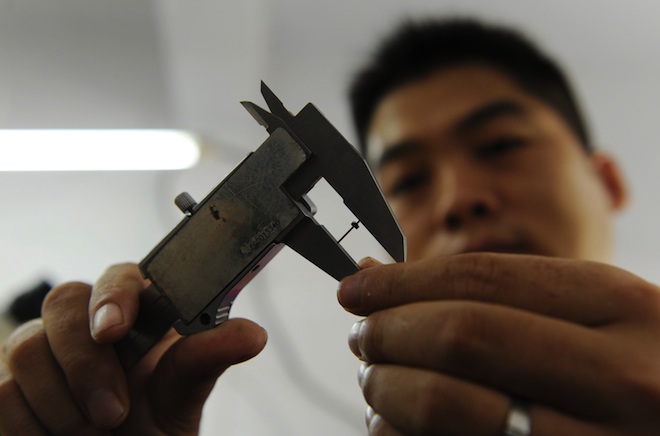Americans in recent years have taken to wringing their hands over leakage of U.S. jobs to China and other developing nations. But on this side of the Pacific, Chinese businesses are quietly making deep investments in the United States that could play a significant if little acknowledged role in the American economic recovery.
That’s the message coming out of the Global China Summit, a day-long event at the United States Institute of Peace (USIP) involving former U.S. Secretary of State Henry Kissinger and former UK Foreign Secretary David Miliband, among other statesmen, scholars and officials Tuesday.
Chinese investment in the United States has exploded over the last decade. Where in 2003 you could count the number of trade deals China had with the United States on the fingers of one hand, today that figure numbers in the hundreds. The trade relationship pumps some five to seven billion dollars into the U.S. economy every year, said Daniel Rosen, a USIP panelist and a member of the Council on Foreign Relations. Thirty-four U.S. states are involved in some kind of business with China — and the number of bilateral deals being struck is growing annually at a rate of 130 percent.
The data defies conventional wisdom that suggests the trans-Pacific economic relationship is lopsided in favor of rising China, which holds $1.2 trillion worth of U.S. debt.
“Too many people in Washington think this is where the story is today,” said Rosen.
Lixin Cheng, an executive at the Chinese telecom giant ZTE Corporation, said his company operates 40 offices in the United States alone, spread across nine different states. Of the nearly 190 employees he’s hired in the last year, 83 percent of them have been American, he said.
The Chinese hiring spree doesn’t end there. Zhihang Chi, vice president and general manager of Air China’s North American division, said his business has flourished since coming to the United States. When the company first arrived, it operated only two flights a day to mainland China. Now, it offers twice-daily flights from several major cities on both coasts. Chi recently hired 30 Americans for a new, $5 million reservation center in Los Angeles.
But Chi, along with several Chinese business leaders, said there were still significant barriers to doing business in the United States. Among them? The lengthy application process for U.S. visas that often deters tourism and business investment.
Former U.S. Trade Representative Charlene Barshefsky blasted the complex visa system, calling it “irrational.”
“Somehow, the United States has an aversion to smart people,” she said. “You go to school here, you get your master’s here, you get your Ph.D here — and then we say, ‘goodbye.'”
Universities should be where the bilateral relationship begins, said Miliband, not where it ends. “The person-to-person contact of this era of globalization is unprecedented. And in a way, the universities’ angle brings that about. If business can come in on the back of that, that will build the confidence for the sort of understanding and (business) relationships that are important.”
Viewing China’s economic ties with the United States as a zero-sum game is a mistake, said Ming Sung, the Clean Air Task Force’s chief representative for the Asia-Pacific region.
“In the United States, common wisdom says, ‘China is going to steal our technology, steal our jobs, steal our money.’ But that conventional wisdom is not true.”
(ed.note: The USIP event was organized by Washington Post Live.)






